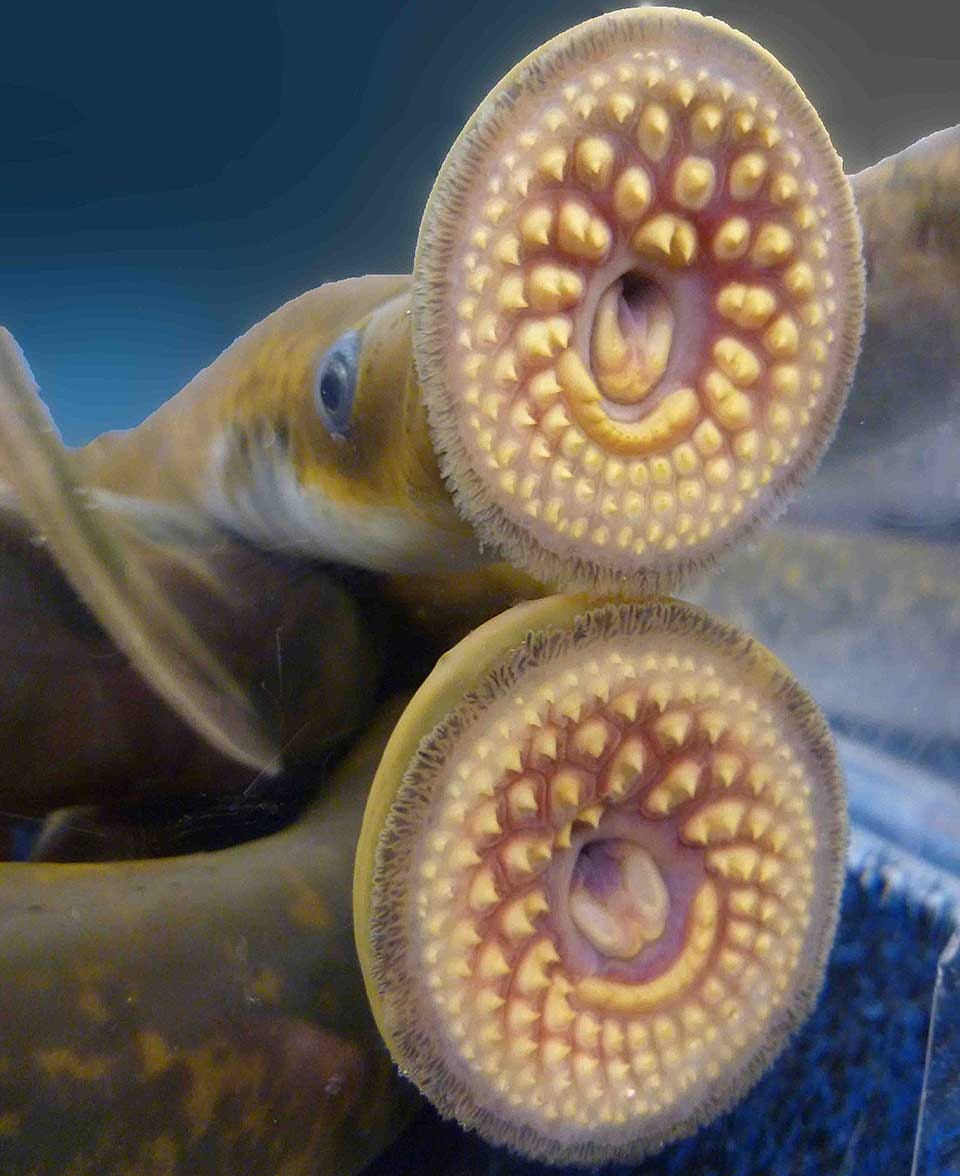Your Cousin, the Sea Lamprey
These suckers have no jaw, but new clues reveal just how related we are
From an evolutionary perspective, sea lampreys are considered the most primitive of vertebrate creatures. Compared to most vertebrates, these parasitic fish—which really suck—have no jaw. To feed, a lamprey attaches itself to a “normal” fish with its suction-cup mouth and horny teeth, then sucks blood and other bodily fluids out with its raspy tongue. Mmm.
None of that sounds anything like what you would do, I hope. But recent research finds sea lampreys are more closely related to you and I than previously thought.
Around 500 million years ago, jawed and jawless vertebrates split into separate evolutionary lines. Researchers had found that the DNA in the hindbrain of sea lampreys was the same as ours. And the new research, published earlier this year in the journal Nature Communications, revealed that like us, the circuitry in a sea lamprey’s hindbrain is governed by retinoic acid—vitamin A.
“People thought that because sea lampreys lack a jaw, their hindbrain was not formed like other vertebrates,” said Robb Krumlauf, PhD, whose lab at the Stowers Institute for Medical Research led the study. “We have shown that this basic part of the brain is built in exactly the same way as mice and even humans.”
The finding is a bread crumb could lead scientists further back in time to find the original, common ancestor of all us vertebrates.
“We all derived from a common ancestor,” said the study’s lead author Alice Bedois, PhD, who had previously worked in Krumlauf’s lab. “Sea lampreys have provided an additional clue. Now we need to look even further back in evolutionary time to discover when the gene circuitry governing hindbrain formation first evolved.”
For the record, human and sea lamprey evolution converged more recently in the history of the world.
Originating in the ocean, the once fittingly named sea lamprey sneaked into the Great Lakes in the 1830s through a newly built canal, and soon decimated trout in all five of the lakes.


